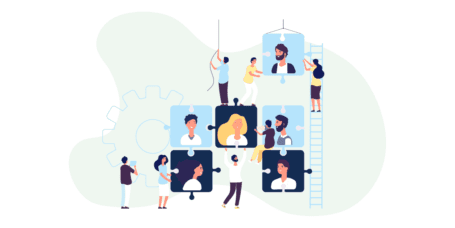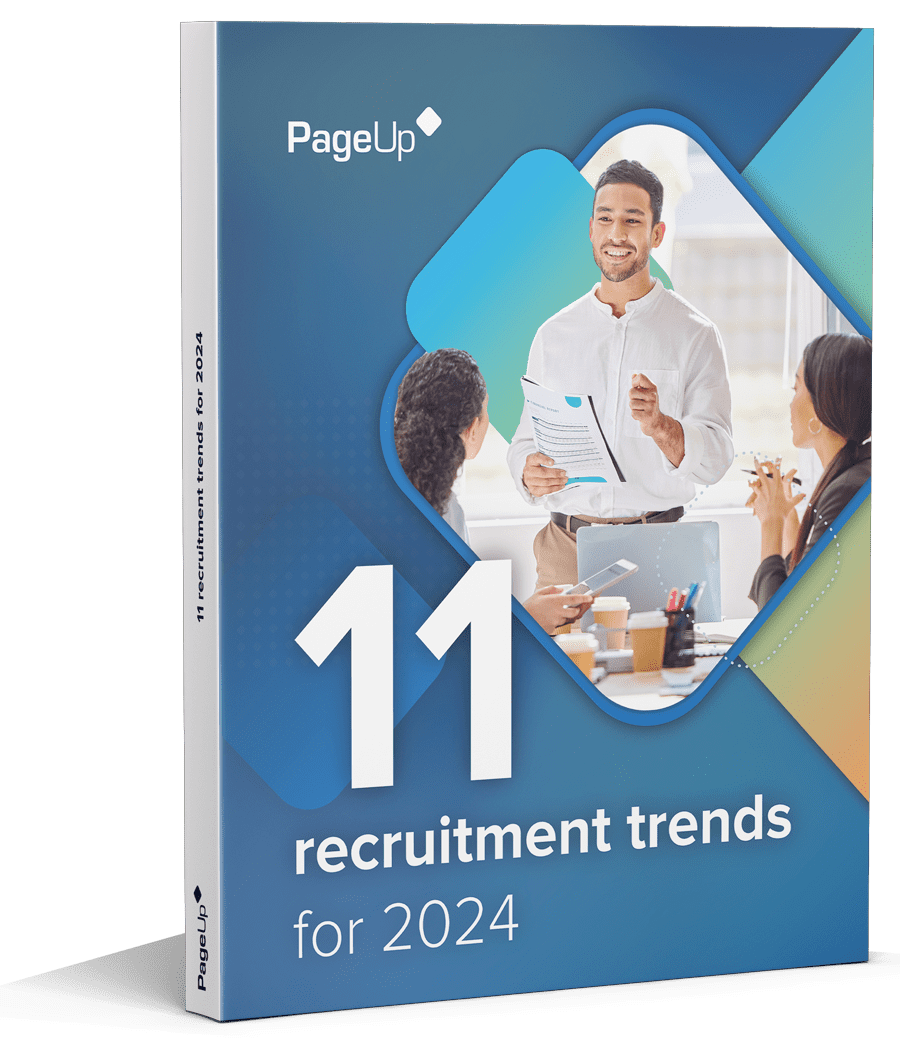PageUp’s Aaron Hardy and Vincent Khoo led a cluster talk on Talent Management at the HR Tech Think Tank event in Singapore. The predominantly HR industry attendees took part in an intensive session to discuss emerging trends and technologies including:
- the future of work
- talent mobility and building internal talent pipelines
- the role of emerging technologies and AI to shape core HR functions
- performance and learning management practices
“It’s important to remember that no single platform is going to solve all of an organisationorganization‘s Talent Management challenges. The aim of this session was to take a very broad look at both what a talent management platform can offer and at key technologies that can be integrated throughout the employee lifecycle,” says Hardy.
Key trends for the future of work
The composition of the workforce is becoming more fragmented. As the last of the Millennials enter the workforce, they’re expected to make up about 50% of the workforce by 2020. Meet a generation of savvy workers, who demand speedy communications and continuous development. According to Hardy, these are some of the key trends occurring now:
- employees want to learn anytime, anywhere (54%)
- mobile devices are integral to learning
- today’s employees want a personalisedpersonalized experience
- there’s a shift from the traditional nine-to-five working model
- there are more freelancers and contractors in the workforce, resulting in a rise of the gig economy
At the same time, a changing workforce needs to be supported by robust technology. Artificial Intelligence, robotics and machine learning are already playing crucial roles here. AI is helping to create more jobs, and automation is helping to remove tedious, manual tasks. We’re augmenting technology to become more human – however recognising that it will never replace the human touch in sensitive fields such as medical diagnosis for patients.
“A changing workforce needs to be supported by robust technology – Artificial Intelligence, robotics and machine learning are already playing crucial roles here.”
Talent mobility and building internal pipelines
“Talent mobility is crucial for every organisationorganization to develop and align your current and future workforce to strategic business needs,” says Hardy. But at the same time, managing and developing people is equally crucial. How are you giving people feedback in line with your organisationorganization’s performance management and employee development plans? More and more companies are moving towards everyday conversations over traditional performance management models. Deloitte implemented this strategy in 2015, resulting in overwhelmingly positive responses from their employees.
To move people from role to role, large organisationsorganizations are taking inspiration from startup mentality – testing agile, iterative and lean methodologies, getting a market response, testing, re-testing and adjusting accordingly. Hardy observes that, “These forays into startup culture provide great ways for organisationsorganizations to identify and leverage key skills in their employees which previously may have gone unnoticed. If a business wants to achieve real, meaningful mobility – the kind that comes naturally for startups with small, tight-knit teams – change needs to come from within the organisationorganization.”
“To move people from role to role, large organisationsorganizations almost have to develop a startup mentality – testing agile, iterative and lean methodologies, getting a market response, testing, re-testing and adjusting accordingly.”
The role of AI and technology in HR
It’s predicted that within the next 15 years, 40% of today’s jobs could be replaced by technology. By 2020, 50% of talent acquisition will include AI and/or machine learning components. Some of the trends and challenges facing organisationsorganizations today are:
- machines threatening future job security
- encouraging adoption of new technology
- reconciling AI and ethics in a people-focused industry
- how humans can augment tech and vice versa
“How can organisationsorganizations fully utiliseutilize AI and automation to fully benefit their workforces, without compromising jobs?” asks Hardy. Right now, there is a great need for businesses to fully embrace new technologies to empower people to make more strategic decisions. At the same time, they should be thinking about roles that can be automated to help reduce human effort and deploy human thinking where it’s needed most. Implementing new technologies involves strategic thinking on the organisationorganization’s part – and if utilisedutilized correctly, they will ultimately benefit from greater efficiencies.”
Talent management technology – where to next?
The necessity for companies to be brave and experiment with new technologies was a key theme emerging from the session. Making mistakes early on and learning from them, adjusting, and continuing to experiment is essential in the new world of volatility, disruption and the ever-changing needs of employees. To keep experiments lean, attendees suggested a number of approaches:
- test within specific departments or sites
- try out technologies with new graduates entering your organisationorganization
- ensure you have champions within your senior leadership team to help with adoption.
“The necessity for companies to be brave and experiment with new technologies was a key theme emerging from the session.” Attendees were also polled on their maturity from talent management technology and performance culture perspectives.
Unsurprisingly, many people had a vision, but were yet to implement a technology stack to support the employee lifecycle. Over the coming years, there may be a shift, as budgets are secured and HR takes brave steps to implement more robust solutions.
On the performance management front, many organisationsorganizations are still following the traditional practices of formal, once a year check ins. Following rounds of healthy debate, attendees favored a shift towards more transparent, everyday performance conversations over rigid, annual processes.
Fresh insights for HR
Stay up to date with HR trends, tips and more when you sign up for our industry newsletter





